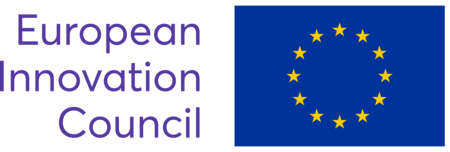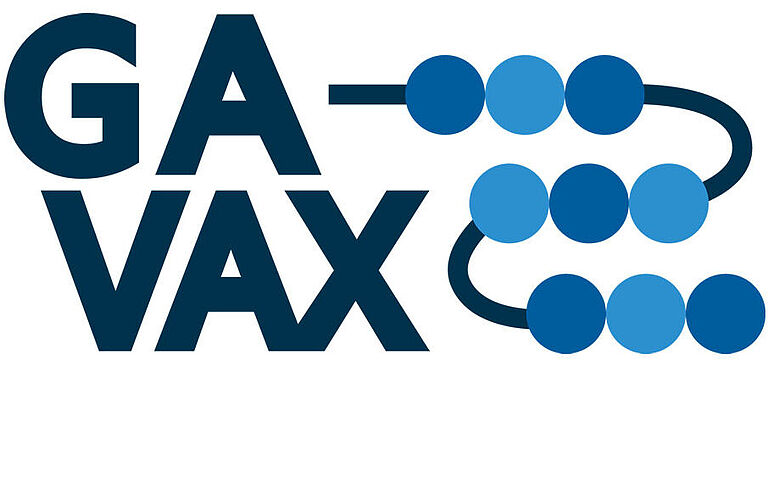GA-VAX
Advancing a vaccine targeting genetic amyotrophic lateral sclerosis (C9orf72 ALS) to the clinical stage
THE CHALLENGE
Amyotrophic Lateral Sclerosis (ALS) is a devastating neurodegenerative disease and the available drugs extend life by only a few months.
With a lifetime risk of about 1:500 ALS is the third most common neurodegenerative disease, affecting motor neurons in the brain and spinal cord, resulting in progressive paralysis. Most patients die within 2 to 5 years of diagnosis. Current therapies can only alleviate symptoms, but cannot stop neuron loss and the underlying disease pathways.
ALS typically occurs in people between 40-70 years of age. Its etiology is multifactorial and the precise pathogenic mechanism still unknown. In most of patients (85-90%) the cause of ALS is unknown (“sporadic ALS”) and hundreds of clinical trials have failed due to a lack of understanding of the pathomechanisms. In 10-15% of ALS patients the disease follows an autosomal dominant inheritance pattern, which means that half of the children of an affected patients are at high risk to develop disease. Genetic variants of ALS triggered by known mutations offer a unique chance for targeted therapy and potentially prevention.
THE OPPORTUNITY
Gene mutations have been identified as triggers for some forms of the disease. About 5-10% of all ALS cases in people of European decent are caused by a mutation in the C9orf72 gene, making it the most common genetic ALS variant. These patients carry a massively expanded (G4C2)n repeat in a part of the C9orf72 gene that is normally not translated. Unexpectedly, the research group of Prof. Dr. Dieter Edbauer at DZNE discovered that the repeat sequence in the genome is translated into long aggregating repeat proteins, most abundantly poly-Glycine-Alanine (poly-GA). In cell and mouse models, poly-GA triggers ALS-related downstream pathology, ultimately causing neurons to die.
The team of Prof. Edbauer at DZNE developed an experimental vaccine that instructs the immune system to produce antibodies against these harmful poly-GA molecules. In a mouse model, vaccination reduces poly-GA aggregates and inflammation and largely prevents motor deficits. When starting vaccination in already symptomatic mice, the developed vaccine reduces neuronal damage to a similar extent. Regular lifelong vaccination will be required to maintain sufficient antibody levels.
GA-VAX is an attractive business case in the orphan disease space with around 2500 prevalent C9orf72 ALS cases in the major markets (US, DE, IT, FR, ES, UK). Around 9000 mutation carriers at risk to develop the disease within 10 years could benefit even more from the approach. Similar vaccine concepts could perhaps even help patients that develop a related disease, called frontotemporal dementia (FTD).
THE SOLUTION
The GA-VAX project aims at developing the previously identified ALS vaccine candidate to the point where it can be clinically tested in C9orf72 ALS patients. For this purpose, DZNE has joined forces with Intravacc B.V., a world leading contract development and manufacturing organisation (CDMO) specialized in innovative vaccines for infectious diseases and therapeutic vaccines. The consortium has been awarded a grant of € 2.5 million from the European Union (EIC) to further develop a prototype ALS vaccine, including process development, scale-up and toxicology study.
Together, Intravacc and DZNE have all the necessary expertise to advance this promising treatment approach against ALS towards clinical evaluation. Whereas Intravacc contributes know-how for production and clinical development of peptide/carrier conjugate vaccines, DZNE provides in-depth knowledge of disease pathology as well as all necessary model systems and access to patient cohorts for future clinical trials. Together the partners will setup a GMP-ready production process for the antigen and conduct pivotal toxicology and efficacy studies in animals in accordance with ICH guidelines. This will allow the consortium to compile a draft clinical trial application for a phase I study in C9orf72 ALS patients. In addition, this data package will be used to raise capital for the phase I trial to bring the GA-VAX vaccine to the market. DZNE has established trial-ready ALS patient cohorts.
QUICK FACTS on the project
Project title | GA-VAX: Advancing a vaccine targeting genetic amyotrophic lateral sclerosis (C9orf72 ALS) to the clinical stage |
Project lead | |
Contact person | |
Funding | € 2.5 million from European Union (EIC Transition Grant) |
Duration | 01 June 2022 – 31 January 2025 |
Contributors | DZNE, Intravacc B.V. |
Keywords | Neurodegenerative disorders, medical biotechnology, immunology, business development, investment readiness |
FUNDING
The GA-VAX project has received funding from the European Union’s Horizon Europe research and innovation programme under grant agreement No 101057649 in the context of the European Innovation Council (EIC). The GA-VAX project builds on results from a previous ERC Consolidator grant (DPR-MODELS) which received funding from the European Research Council (ERC) under the European Union’s Seventh Framework Programme (FP7) under grant agreement No 617198 and a subsequent ERC Proof-of-Concept grant (DPR-VAX) which received funding from the European Research Council (ERC) under the European Union’s Horizon 2020 research and innovation programme under grant agreement No 875677.
Disclaimer: Funded by the European Union. Views and opinions expressed are however those of the author(s) only and do not necessarily reflect those of the European Union or the European Innovation Council and SMEs Executive Agency. Neither the European Union nor the granting authority can be held responsible for them.



